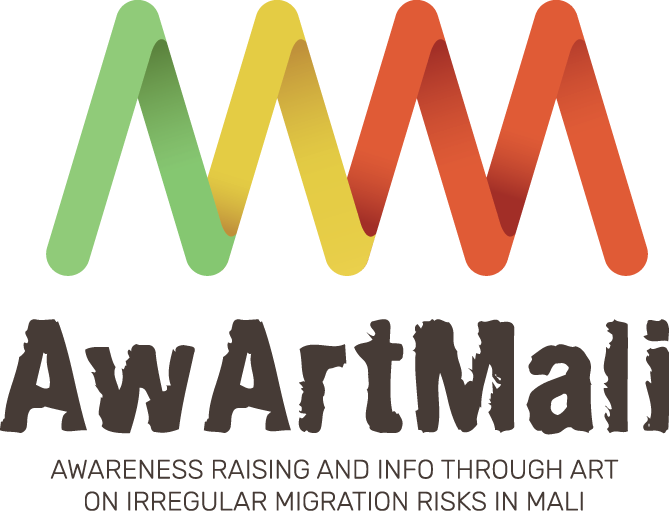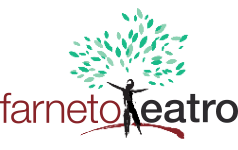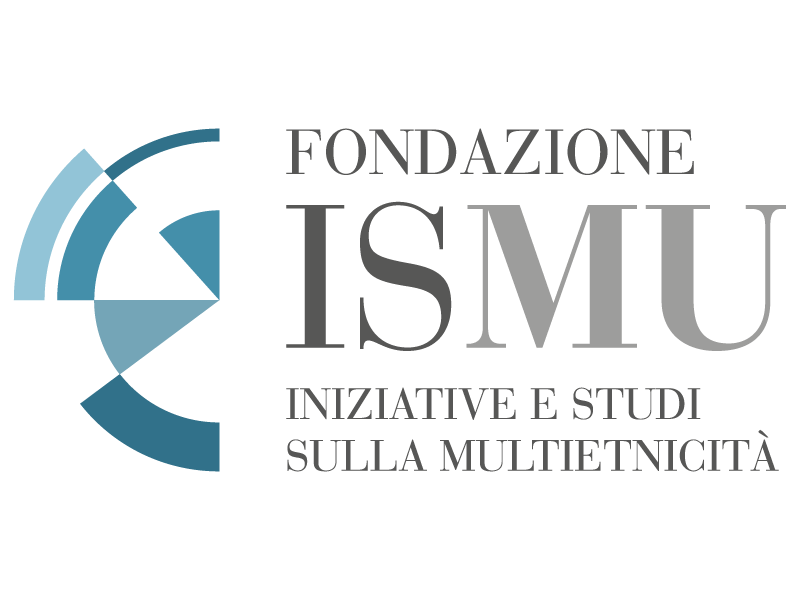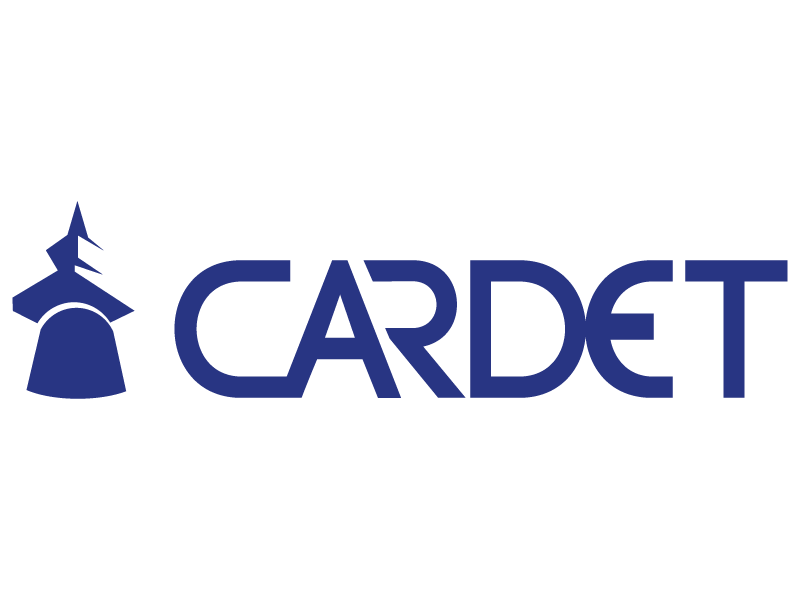The AwartMali project aims to inform on the risks of irregular migration to Europe. The show “tunka/L’aventure” is intended primarily for young people who see the journey as a perspective for their future.
“TUNKA, l’aventure” The youngsters’ involvement: work in schools, the contest for the best theme and drawing.
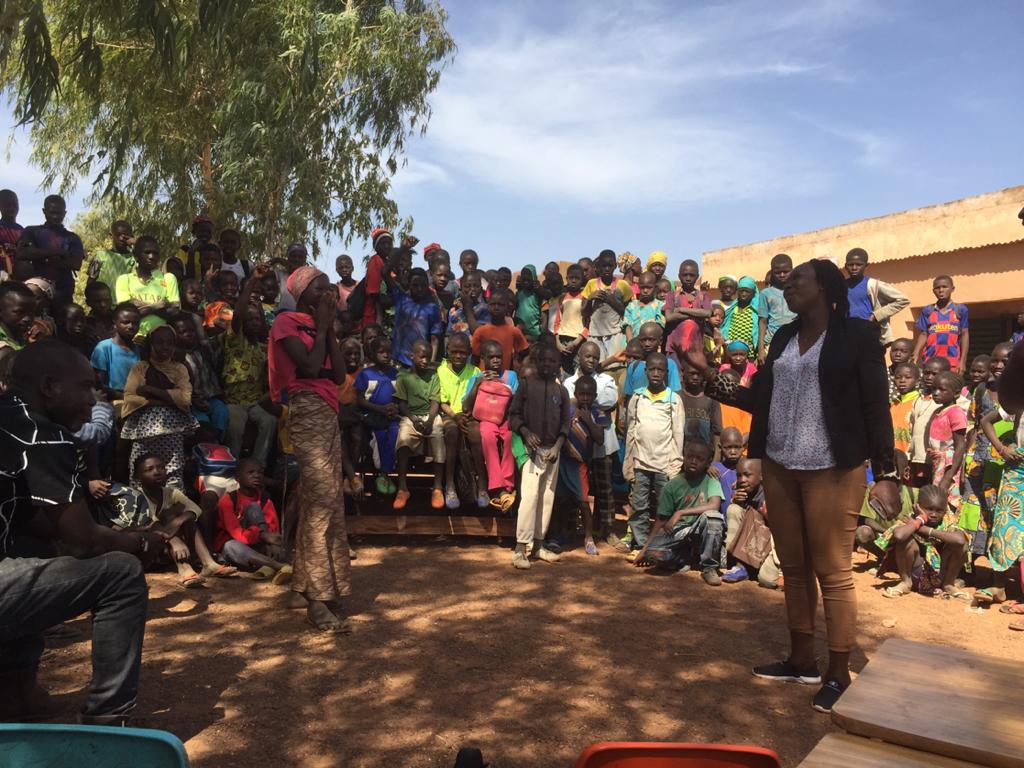
In fact, the play deals with the migration causes, the travel risks, the migrants’ conditions in Europe, the return difficulties, and wants to contribute to change the perception and behaviour by stimulating reflection and discussion.
In Kati and in the rural villages reached by the show (from 3 to 21 February), the participation of young people (children, youngsters, teenagers) was very wide, largely spontaneous (many boys have finished or left the study) partly stimulated by the principals and teachers of public schools who were convinced and active supporters of the project. State educational centres and community schools (organized and supported directly by the communities), are present in the villages touched by the theatrical caravan tournée:N’GOLOVALA, FANAFIE’ CORO, KAMBILA VILLAGE, SIRAMANSO, FANSIRA – CORO, GUILY, SONINKEGNY, M’PIEBOUGOU, GORO, DIO – GARE, SOTOLI, DIAGO VILLAGE, YELEKEBOUGOu.
The choice of the entertainment venues has facilitated the presence of children, in fact the performance has took place in the school courtyards (spacious and shaded, not far from the centre of the village and usually frequented by all the population) and the schedule, agreed with the communities and schools themselves so as to foster participation and come back home before the sunset.
In all the schools the preparation began months before, with meetings and presentations of the project, in some of them the principals have been interviewed, and in three cases it was possible to carry out a more complex laboratory activity with interventions before and after the show that involved the author of the text Ildeverd Meda, the director Luca Fusi, the actors of the company and Maurizio Schmidt who designed, coordinated and documented in video the school activities.
In Fanafié Coro (in the municipality of Yelekebougou) two school classes of 8 and 9 level with teens from 15 to 18 years were involved, the course was planned with the school director Christophe Traoré. Some months before the show (June 2019) the project was presented and discussed, and the youngsters, stimulated by Ildeverd Meda (the author of “tunka”), imagined and represented a situation that would then be inserted in the text of the show: the return to the family of a returning migrant. After attending the show on February 4, the young people and others discussed it with the teachers. In a meeting with some actors of the company (February 10) they have revisited the same situation and imagined possible variations. It was a very engaging experience, which made it possible to explore in a fun and constructive way the family dynamics with respect to the theme of emigration.
In Goro, in the municipality of Diago, information and awareness-raising meetings were held in the previous months led by the Malian NGO Le Tonus. Many students attended the show (February 14), and a meeting took place a few days after (February 17). The lessons were suspended because of the national teachers’ strike, so with the students who had no class that morning, the appointment saw a particularly wide participation of teens but also children who had attended the show. The actors of the company, supported by some professors (in particular has actively collaborated to the project the principal Djibril Koné), have verified the level of understanding of the show, but above all they recreated with the older students some situations and with the kids the physical actions that had remained most impressed and had struck the imagination: the march on the spot (in the desert), the group journey on the jeep, the boat journey and the shipwreck. This activity has allowed to involve a large number of children.
In all the representations, the participation of children of all ages and their attention was surprising: TUNKA is not in fact aimed at children, but the mimic actions that dot the show, the exceptional nature of the event, the presence of the whole community has involved them, since the editing phase, and even if not having understood much of the text, the experience has undoubtedly marked them and will remain in their memory.
In Kambila village, a more articulated theatre workshop was held, designed in agreement with the principal Hamadou Traoré (already interviewed and involved in all phases of AwArtMali): a local theatre group led by Tata Diawara (also French teacher in the school) after seeing TUNKA twice and meeting the actors, she worked with some students from the last school classes. The youngsters involved attended the show on the 11th of February, discussed and built their representation on the theme: writing a text, reinterpreting and varying situations, inserting poems and songs and an original choreographic action. The public outcome of about half an hour, was presented in the schoolyard on the morning of February 21, it was attended by the Tunka company and a large group of students and citizens. An interesting comparison between students and professional actors was then held.
Also the Mamby Sidibe high school of Kati and its teaching staff led by the principal Seydou Coulibaly has been involved in several activities of the AwArtMali project that have seen the active participation of students in different moments of awareness and focus group on the TAMA 365 campaign and the activities developed by the partner Giusti Eventi.
On the 20th of February, TUNKA took place for the students (about 300 participants and debate attended by students and professors) and a school class was also involved in the production of a video clip that the musicians of the Kira Kono group made on the basis of a song composed for the project (entitled “TUNKA, l’aventure”). The two rappers are from Kati, they are very popular and were former students of that high school: the initiative was an event, highly appreciated by the students and the song will be an effective means of diffusion and impact of the messages and content that the project intends to develop for one of the main target groups of the project represented by the young Malians more likely to migrate.
Fanafié coro, Goro, Kambila, Kati were the context of small interventions carried in depth, that the teens involved will not forget.
It is important to remember that the participation of public schools in the project was not taken for granted: from months– and also in the period when the tour took place – teachers throughout Mali are striking every other week for salary adjustment reasons promised by the state but not given. In these villages, schools are fundamental, principal (they have often been interviewed for the project and have intervened in debates) and many teachers are authoritative figures in the villages: address literacy and training problems facing poverty and marginalisation, and seek to address the causes of early school leaving (especially the plight of girls threatened by early marriage and their role in caring for the family). For this reason, they felt very involved in the theme, and decided to raise awareness and organize the meetings, while remaining on strike. They are the adult figures closest to adolescents, those who can make them more aware that designing, having expectations, dreaming is not only legitimate but a right. Their dream may include “adventure”, but it is also a right-duty to know the problems and risks, as well as the situation, opportunities and needs of their country. It is not by chance that the need to build opportunities and to be able to dispose of them by facing their own future was the theme most frequently raised by young people in debates.
Finally, for all the other schools that have participated in the show and will ask to join, a contest of themes and drawings inspired to the migration with the deadline on March 13, with a selection that will reward (in school supplies) the best works by the end of April. This will be an additional tool for learning about children’s views, but it will be crucial that the work of raising awareness on the risks of irregular migration and possible opportunities for a dignified life in one’s own country, can continue even after the end of the project. Because the future is a right of the young generations that must know no boundaries.
AwArtMali is a project co-financed by the European Fund for Asylum and Integration Fund of the European Union (AMIF)
AMIF2017-AG-INFO_824407 coordinated by TAMAT NGO in partnership with ISMU, GIUSTI EVENTI, FARNETO TEATRO, INSTRATEGIES, CONGENIA, CARDET #EUfundshomeAffairs
#migrationEU
#EUandME migration
#awamalirt
#Tama365
What is AwArtMali
AwArtMali aims to contribute to the change of perceptions and behaviour of Malian people looking to irregular migration towards the EU as the only solution to their socio-economic problems.
The action is intended to reach and involve Malian people in order to make them aware and inform them on the risks of irregular migration, on legal alternatives and on economic opportunities available in their country with a multistakeholder approach consisting in awareness campaign and information activities.





